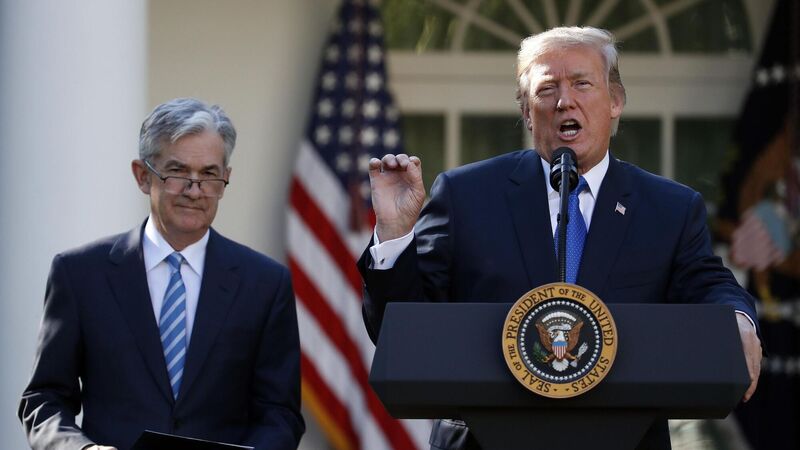Europe suddenly looks appealing amid Trump's policy instability

Last Thursday, US president Donald Trump launched a broadside against the chairman of the Federal Reserve, Jay Powell.
Amidst all the gloom, doom, and intense uncertainty permeating the world now, Irish borrowers got a piece of good news last week. The ECB delivered the seventh interest rate cut since June 2024, and the good news is that there is more to come.
The ECB pointed out on Thursday that inflation is on track to return sustainably to its targeted 2% level; service sector inflation is easing; wage growth is moderating; firms are absorbing cost pressures; and most importantly the risks to growth from global trade tensions are intensifying.











